- Home
- Mack Reynolds
Computer War Page 9
Computer War Read online
Page 9
“What’s this got to do with here and now?”
The palsied socioeconomist took it up. “The Betastani ships are all submergible, of course. They have given up acting as a fleet and all of their craft have taken up raiding our commerce. Your Leadership, our glorious navy can’t begin to defend our more than five thousand merchantmen. The Betastani act as though each of their units were expendable. They dash in to the attack no matter what the odds and would rather sink a merchant ship than a battle cruiser. In fact, several of our Coaid admirals contend that they’re a mistake; they just bunch up our ships and make them more vulnerable and easier to find.”
“Sum up the situation, Coaid! What does it mean in terms of the war effort?”
“Ordinarily. Your Leadership, Alphaland is all but self-sufficient. But not in time of war. The expenditure of raw materials in our munitions factories are enormous. We need copper, chrome, lead, zinc. Eventually we will need…”
Number One held up a hand. “All right. The situation isn’t expected to last long enough for this to be an issue. The conflict will be over before it becomes disastrous. Almost all Betastan has been overrun, their armies have collapsed or are dissolving. As soon as we can locate and arrest their underground government, we can force them to sign a peace. Our recovery will be immediate. We’ll seize their treasury to buttress our own. And the neutral nations, seeing our strength of position, will rally to our support.”
Pater Riggin said mildly, “The neutral nations, Jim? I understand that Gambania, Morrisland and New Zambia severed relations with us this morning, and that their mobilization is almost complete.”
McGivern was saying in agony, in refutation of his leader’s words, “Originally, the computers said the war would last less than two and a half months. Later they said less than a month. But now the war’s going into its fifth month, and we’re in a worse situation than when it began. We can’t keep this up, Jim, we can’t keep it up!”
“Don’t call me Jim, you damned funker!” Number One roared.
The Old Hand stared at him, shocked.
The skipper of the M.S. Freedomland came up behind his third officer and the two deckmen who were leaning over the starboard rail. He rapped, “What in the name of the Holy damned Ultimate are you doing ?”
They turned, grinning.
“Look, those kids down there.”
The captain looked over the side. Below were four or five kids on a makeshift raft and two others working out of a battered rowboat; all of them were attired in raggedy bathing trunks and were yelling and shouting up to the crew members.
“What’n the hell do they want?” the captain growled. “We’re almost loaded. You men get to your damned posts.”
The third said, “They’re diving for centavos, Skipper. The local coinage. Here, watch.” He tossed two or three coins into the water.
Immediately, it was a matter of bottoms up, and the kids dove into the darkish waters.
“They gettum, every one,” one of the crewmen said, laughing. “You’d think that water was too dirty.”
“I’ll be damned,” the skipper said. “Like nardy dolphins, aren’t they?” He stuck his hand into a trouser pocket to check his change.
Down below, one of the dolphins had pulled up against the ship’s hull. A small plastic packet was in his hands. He placed it carefully about ten feet abaft the bow and about two feet above the keel. It stuck magnetically. If information was correct, and it was, the fuel tanks of the M.S. Freedomland commenced at this point.
The swimmer, his lungs beginning to ache, threw a small stud on the side of the plastic container and headed back for the surface; in his hand was a coin which he had extracted from his belt, rather than finding it on the harbor bottom.
Behind him, the little packet was going tic-tock.
Chapter IX
Temple Bishop Stockwater, trailed by two Temple Vicars, proceeded benignly along the corridors of the Commissariat of Information.
Passersby widened their eyes, came to a quick halt and touched fingers to lips in religious salute. He nodded piously and murmured blessings as he progressed.
In the central offices of the deputy, he made his way, in the slow shuffle of the religious, to the desk of Senior Secretary Jet Pirincin, who was all but popeyed at his presence. She began to come quickly erect, her fingers immediately to lips.
But he held out a soft, white hand in placation.
“Easily, daughter,” he murmured. “I shall not interrupt your blessed efforts, participating in the holy Crusade. Now, that is the Coaid Deputy’s office, I assume?”
“Yes… yes… Your Blessedness. I… I…”
“Don’t bother yourself, daughter.” He blessed her and moved on.
Upon the entry of the United Temple’s representative to the Central Comita into his inner sanctum, Ross Westley hurried to his feet. The visit was unprecedented. Although Temple Bishop Stockwater and he had met often in the presence of Number One, they had never before held private conversation.
The Temple Bishop smiled unctuously at him, murmured something that ended in, “… my son,” then turned to his Temple Vicars.
It occurred to Ross Westley that the two younger men were on the tall and brawny side and not overly saintly in countenance.
The Temple Bishop bade them remain outside and waited until the door was closed. He then turned his rounded face to his host.
Ross Westley indicated his most comfortable chair. “Your Blessedness, this is a great honor. Could I offer you refreshment?”
The other lowered his bulk and gave an un-bishop-like squirm to achieve complete ease. He beamed at Ross. “I have heard that the Presidor imports a beverage from Mother Earth that is quite unique. Ah, sherry, I believe it is called. You wouldn’t have a small amount I might sample?”
Ross was slightly taken aback. “Sherry? I believe I’ve read about it. But, I understand it’s alcoholic, Your Blessedness.”
The Temple Bishop looked at him. Finally he said, “Indeed. Then, of course, the Presidor would never touch lip to such an abomination.”
Ross shrugged that part of it off. He indicated his orderbox. “I could have Coaid Pirincin bring you a sherbet.”
“Never mind,” the Temple Bishop said, his voice slightly less benign. “I shall, Coaid Deputy Westley, come immediately to the point.”
However, he didn’t; for a time, he skirted it.
He said, eyeing the other pensively, “You have, I understand, some learning in history, Coaid Wesley.”
Ross, wondering still at the other’s presence, said, “I had expected to become a teacher of the subject, before my father’s assassination brought me to this position.”
Temple Bishop Stockwater put the tips of his fingers together and beamed. “Of course. Then the following facts will not be strange to you. My son, I bid you recall the history of Western religion in the Mother Earth nation of Mexico. Most briefly, representatives of the prevailing European religion landed with the conquistadors under Cortes. They backed with their every effort the Spanish cause and were instrumental in completely destroying the religious and other institutions of the aborigines.”
Ross, frowning, nodded. “Of course.”
The Temple Bishop went on. “For several centuries, during the Spanish domination, this religious organization supported the Spanish in their disastrous rule of the predominantly Amerind population. When there was rebellion, they strongly sided with authority. At long last, when Europe was embroiled in the Napoleonic Wars, Latin America revolted, including Mexico. The church lined up, as usual, with the ruling power.”
Ross, still frowning, still nodded.
“However, the people won and Spain was ousted. The new government continued its attempts at reform of the institutions that had been established under the Spanish rule. But the more conservative groups, largely remnants of the older regime, fought back to the extent possible and finally invited in the so-called Emperor Maximilian, an Austrian Hapsburg, who w
as backed militarily by Napoleon the Third of France. The religious body supported the France-Maximilian alliance and repudiated the democratic government headed by Juarez.
“But—shall we say, unfortunately?—it was Judrez who prevailed and Maximilian was shot. Juarez, however did not long survive him and soon the government came under the dictatorship of Porfiro Dias, the representative of the great landholders and most conservative elements. When the people again rose in revolt against the dictatorship, under Madero, the religious organization supported the authorities. Although Madero was killed, however, his followers eventually won and came to power.”
The Bishop at last went silent and looked at Ross Westley thoughtfully. “My son, are you beginning to see my point?”
Ross shrugged. “The historian, Gibbon, pointed out in his Decline and Fall of the Roman Empire that established religions always support the established authority.”
The United Temple representative nodded, as though the other had made some profound statement. “As it should be,” he said. “However, let me finish with the example of Mexico. Four times in succession this religious group had backed the, ah, established authority, or, at least, the minority conservative elements in society. The people, at long last, had grown tired of this. So strong measures were taken against our colleagues of yesteryear. Under the conservative regimes they had grown wealthy indeed, controlling a great deal of the property of the country. But the new government now confiscated this property. They passed laws against alliances between the State and Church. They prevented religious orders from teaching in the schools. They went so far as to forbid priests and nuns from appearing in the streets in religious garb. They passed laws preventing them from soliciting alms in public. They even passed a law preventing church bells from ringing more than one minute in duration at a time.” The Bishop registered indignation. “It was a horrible persecution.”
Ross said, “Your Blessedness, I am afraid I am dense. I don’t see what you’re driving at.”
Temple Bishop Stockwater nodded. “My son, the United Temple must take a lesson from this example and other similar ones. Although it has a duty to established authority, it has a greater duty still to itself and its mission to bring all to the eventual glory of the Holy Ultimate. No longer can a religious organization in all consciousness stand on the sidelines when an unpopular authority is running athwart the desires of the people.”
Ross Westley couldn’t believe he was translating this double-talk correctly. He stared at the other.
The Temple Bishop looked into his eyes. “My son, there are others who are of similar belief. I pray you are with us.”
“With you! What are you suggesting?”
The other smiled benignly. “There will be a meeting of our farseeing, idealistic group almost immediately, my son. Will you come with me?”
Ross Westley was still staring. He was trying desperately to assimilate this. If it meant what he thought it meant… He came suddenly to his feet.
“Let’s go,” he said.
At the door, he stood aside to let the older man precede him. The two goon-like Temple Vicars fell in behind. For a brief moment a suspicion hit him. What would have happened had he refused to accompany the United Temple representative?
The group passed Jet Pirincin who followed them with her eyes, a surprise in their depths, until they had passed completely from the offices.
She thought about it for a moment, reached down slowly and picked up a handphone, unequipped with screen. She said into it, “Relay this to T.”
Outside the Commissariat of Information building was the elaborate, almost flamboyant, hover-limousine of a Temple Bishop, the insignia of the United Temple prominent on its side. Behind was parked a small vehicle, more decorous but with the emblem on both doors and rear. For the Temple Vicars cum guards, Ross told himself.
He was accorded the honor of riding with the Temple Bishop, wondering, as they drove, at the destination.
He might have known. Temple Bishop Stockwater dialed the coordinates of the War Ministry and they were there within the quarter hour, their clearing control dividing the city traffic for them. They wouldn’t have taken any longer in the pneumatic.
They spoke only once during the ride, Ross Westley spending the time in hurried attempt to think this all out.
He had said, “Who else will be there?”
“That remains to be seen, my son,” the other had said smoothly.
The car took them to a back entrance, through highly guarded byways, and the major of the Surety men posted there did no more than take in the car’s insignia before coming to the salute.
They stepped out of the luxurious vehicle and Ross stood to one side to let the berobed older man precede him. He followed in silence. The Temple Vicars remained outside, still seated in their car.
At the entry, they passed two more guards, one of whom was seated at a control board. A light flickered red.
The other Surety agent stepped before them respectfully, but with his right hand only inches from his bolstered sidearm.
“Coaid,” he said to Ross, “you’re carrying a shooter.”
Ross looked at him. “I’m a full Deputy and the country’s at war. Why shouldn’t I carry a shooter?”
“Sorry, Coaid Deputy. You’ll have to leave it here.”
Ross looked at the Temple Bishop who nodded with the same benign expression.
He shrugged, brought the gun from his shoulder holster and tendered it to the guard, then followed after the older man.
There were four more guards before a heavy door. Two of them flung it open, somewhat dramatically, Ross thought, upon Temple Bishop Stockwater’s approach.
Inside, around a conference table, were those whom, after all, Ross Westley had actually expected to see. Well, there were several others as well. In fact, he was somewhat surprised to find his own Assistant Deputy, Job Bauserman.
There were a full dozen of the Central Comita and a check revealed all the more important faces, save, possibly, that of Philip McGivern of Socioeconomics. One of the Old Hands, Ross told himself. He had probably not even been approached.
Mark Fielder, the Surety head, broke off the whispered conversation he was having at one end of the room with Marshal Croft-Gordon, and said, smiling his cold smile, “I assume this is all, Coaids. Shall we call the conference to order?”
He strode to the head of the table and took up the gavel there, saving them, however, from the necessity of hearing it bang.
Ross Westley secured a chair at one end, two seats away from anyone else. He watched and listened warily.
Mark Fielder had evidently appointed himself spokesman as well as chairman. As soon as they had all found places, he looked out over them suavely, then began.
“Coaids, it hardly needs to be pointed out that Alphaland is in a crisis. Due to the most inept handling of a relatively simple situation, we now face disaster unless strong steps are taken by those of us assembled here. Frankly, and as is well known to you all, our leader has failed to rise to the occasion.”
“Right!” somebody growled.
“If we are to rescue the situation, we must act with dispatch.”
Marshal Croft-Gordon was on his feet, his swagger stick banging on his leg. “Then let’s stop talking and start acting! I’ll tell you all this: I’ll take no more orders from the arrogant flat!”
Fielder held up a hand, though smiling his understanding. “Please, Marshal. Some preliminary decisions must he made.”
Jon Matheison, of Finance, called out, “One immediate problem. Who is to step into his shoes? Who among us is strong enough to take over the office of Presidor?”
“Who’s Number One, in short?” one of the assistant deputies present called.
Fielder was shaking his head. He looked at Ross Westley and said, “I’m sure our deputy of propaganda would agree with me in this. It is not going to be enough to remove the present Presidor and place another in his office. The people are going
to want the outer semblance, at least, of a complete change. That we can sell. Am I right, Coaid Westley?”
Ross shifted in his chair, all eyes upon him. “If you can sell them a change at all, it had better be something revolutionary, all right. Half measures would be probably worse than none at all.”
“Correct!” the Surety head applauded.
Temple Bishop Stockwater said worriedly, “Now, my children, let us not become too radical here. We would not wish to disturb established institutions.”
Job Bauserman, unduly articulate in this gathering of his superiors, Ross thought with some surprise, said, “But we’ll have to seem to disturb them, Coaids. The candidate for office, whether he means to attain it through force or by ballot, promises great reform in the attaining. Living up to it, later, is another matter.”
Fielder looked at the propaganda man thoughtfully. “You are quite correct, of course, Coaid. We must promise them the moon, as the ancient expression goes.”
Matheison added, “And later deliver green cheese.”
Fielder took direction again. “So simply changing the Presidor would be insufficient. I propose, Coaids, that a triumvirate be nominated here, this afternoon. And that elections be promised within a year after our coming to power.”
“Elections!” the Marshal blurted, unbelievingly. “You mean real elections?”
The Temple Bishop, too, led the objections. “My son, much though I am in sympathy with democratic institutions, and look forward to the day when they are practical, surely it is realized by all present that our good people are not, at present, capable of voting intelligently. They lack, ah, the educational background, the, ah, intelligence. Until they are arrived at a higher level than now prevails, it falls upon us of the, ah, better classes to lead them.”
Ross Westley looked at the holy man. It was a cry heard down through the ages. He wondered if Stockwater had ever read of the fact that most primitive men, long before the advent of writing, not to speak of education, ruled themselves democratically. Not that Ross had any intention of bringing forth the subject in this gathering.

 Happy Ending
Happy Ending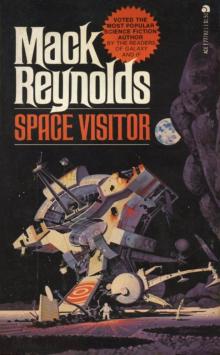 Space Visitor
Space Visitor A Kiss Before Loving
A Kiss Before Loving Episode on the Riviera
Episode on the Riviera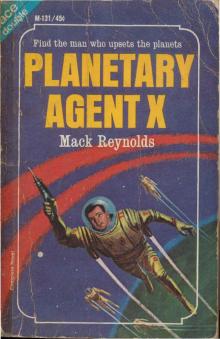 Planetary Agent X
Planetary Agent X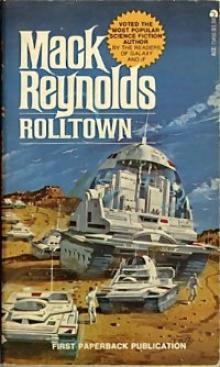 Rolltown bh-3
Rolltown bh-3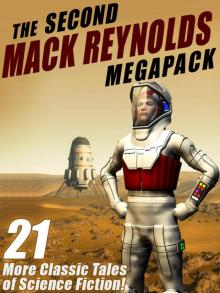 The Second Mack Reynolds Megapack
The Second Mack Reynolds Megapack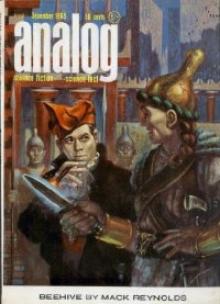 Dawnman Planet up-2
Dawnman Planet up-2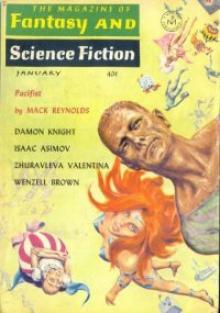 Pacifist
Pacifist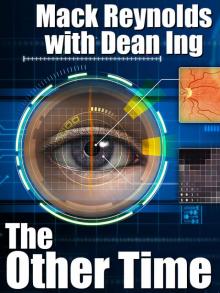 The Other Time
The Other Time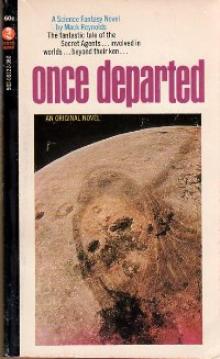 Once Departed
Once Departed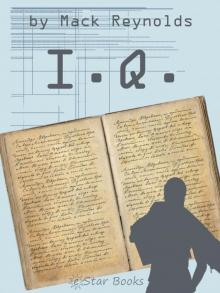 IQ
IQ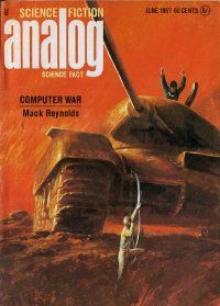 Computer War
Computer War Earth Unaware
Earth Unaware The Rival Rigelians up-3
The Rival Rigelians up-3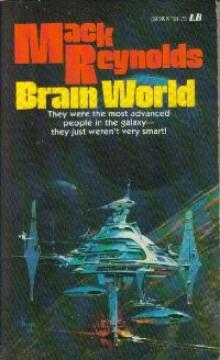 Brain World up-7
Brain World up-7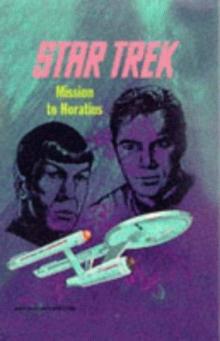 Star Trek - TOS - Mission to Horatius
Star Trek - TOS - Mission to Horatius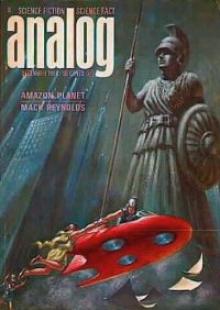 Amazon Planet up-5
Amazon Planet up-5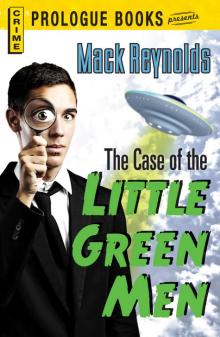 The Case of the Little Green Men
The Case of the Little Green Men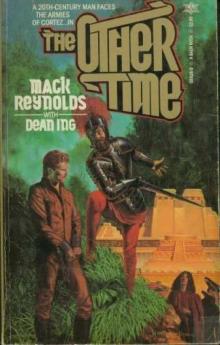 Other Time
Other Time The Mack Reynolds Megapack
The Mack Reynolds Megapack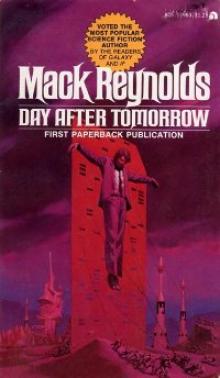 Day After Tomorrow
Day After Tomorrow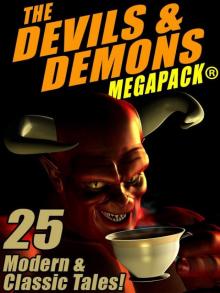 The Devils & Demons MEGAPACK ®: 25 Modern and Classic Tales
The Devils & Demons MEGAPACK ®: 25 Modern and Classic Tales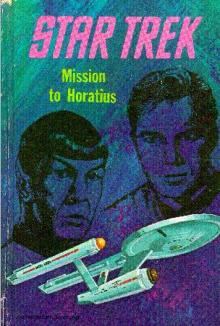 Mission to Horatius
Mission to Horatius Ability Quotient
Ability Quotient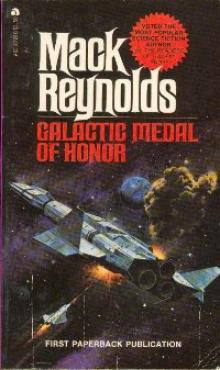 Galactic Medal of Honor
Galactic Medal of Honor Trojan Orbit
Trojan Orbit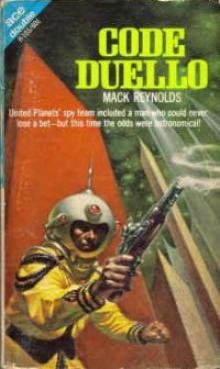 Code Duello up-4
Code Duello up-4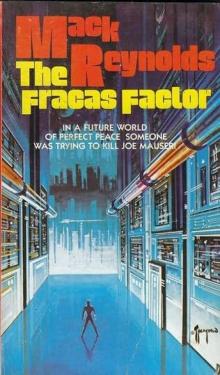 The Fracas Factor
The Fracas Factor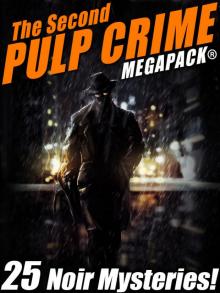 The Second Pulp Crime
The Second Pulp Crime Deathwish World
Deathwish World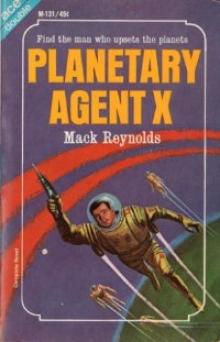 Planetary Agent X up-1
Planetary Agent X up-1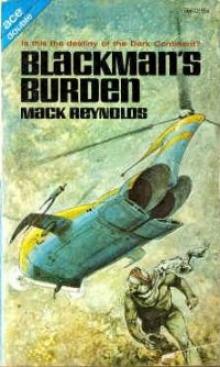 Blackman' Burden na-1
Blackman' Burden na-1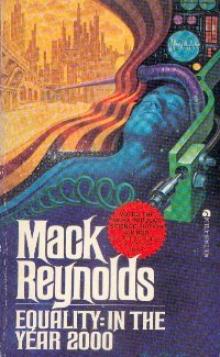 Equality: In the Year 2000 jw-2
Equality: In the Year 2000 jw-2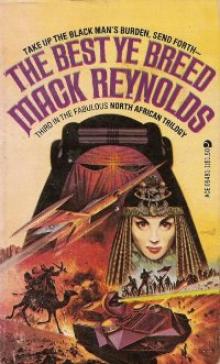 The Best Ye Breed na-3
The Best Ye Breed na-3 The Jet Set
The Jet Set The Rival Rigelians
The Rival Rigelians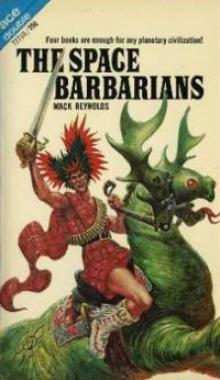 The Space Barbarians
The Space Barbarians